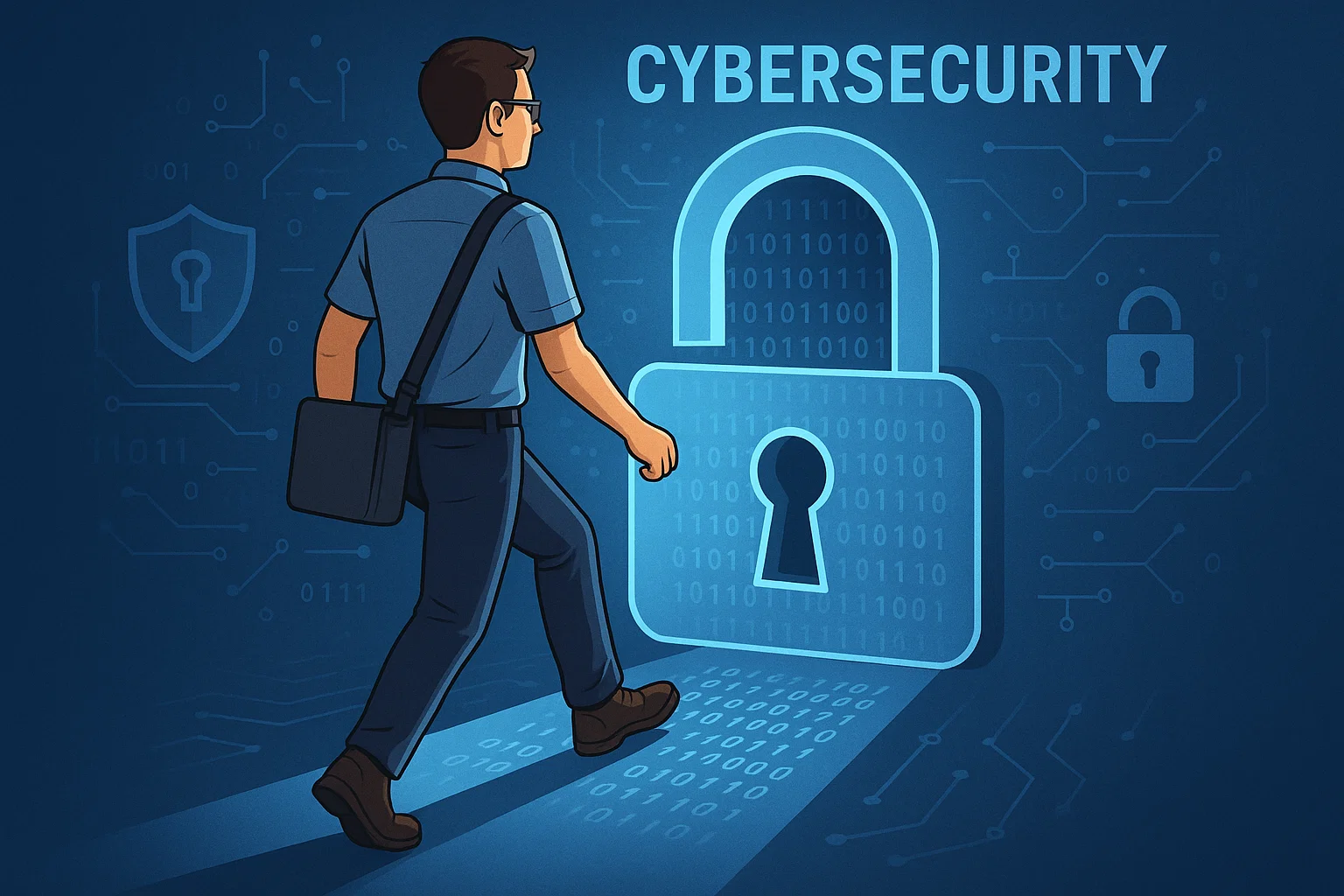The demand for cybersecurity professionals has never been greater. As threats evolve, organisations across Australia are investing heavily in defence, detection and governance. But with the talent shortage showing no signs of slowing, many IT professionals are stepping up to fill the gap.
And it makes sense – cybersecurity offers higher salaries, long-term career security and the chance to protect people and data in a rapidly changing digital world.
Yet, for those in traditional IT roles, the path forward isn’t always obvious.
Here’s how to make the transition, and why hiring managers should be paying close attention to IT crossovers.
Why your IT background is already cyber-ready
The truth? You’re already halfway there.
Many of the best cybersecurity professionals started in IT. Systems administrators, network engineers and helpdesk specialists all bring transferable skills that align perfectly with cyber roles.
- System administrators understand infrastructure – the backbone of threat modelling and incident response.
- Network engineers already speak the language of firewalls, VPNs (virtual private networks) and protocols – essential for defending networks.
- Helpdesk professionals excel at people skills – vital for governance, risk and compliance (GRC) and user awareness initiatives.
If you’ve ever patched vulnerabilities, reviewed permissions or handled data backups, you’ve already been contributing to your organisation’s security posture.
Step-by-step: How to pivot from IT to Cybersecurity
1. Choose your direction
Cybersecurity covers a vast landscape. Start by identifying where your strengths and interests lie.
Is it in technical pathways (threat detection, penetration testing, incident response) or governance pathways (risk management, compliance, policy design, audit)?
Knowing which lane suits you best will guide your training and networking decisions.
2. Upskill strategically
Practical, hands-on experience will always set you apart. Begin with real-world simulation platforms like TryHackMe, Hack The Box and RangeForce. Once you’ve built confidence, pursue certifications that demonstrate credibility, such as CompTIA Security+ (great entry-level certification) and ISC2 Certified in Cybersecurity (CC) or SSCP (for governance or hybrid roles).
Each certification adds structure and recognition to your existing IT experience.
3. Reframe your experience
Your IT background is full of cyber-relevant achievements – you just need to translate them into security language. For example:
- Instead of “I managed Active Directory accounts”, say “I implemented role-based access controls to minimise insider threat risk”.
- Instead of “I applied software patches”, say “I reduced the organisational attack surface through proactive vulnerability management”.
This reframing helps hiring managers immediately see your security mindset.
4. Build your network and visibility
Cybersecurity is a community-driven field. Engage with others who share your interest in the space.
- Join online forums and Slack communities like AUSCERT or Australian Women in Security (AWSN).
- Attend local SecOps, ISACA or AISA events.
- Connect with cybersecurity recruiters who understand how to align your skills with real opportunities.
Building your network early gives you access to roles before they’re even advertised.
For hiring managers: Look inside your IT team first
Struggling to hire cybersecurity talent? You’re not alone – but have you considered that your next analyst might already be in your organisation.
IT professionals bring process discipline, deep technical understanding and familiarity with your internal systems. With the right mentorship and training, they can rapidly evolve into skilled defenders.
Investing in IT-to-cyber transitions builds loyalty, strengthens succession pipelines and helps you develop a more resilient cyber culture across the business.
Cyber talent is built, not found
Cybersecurity success isn’t about chasing unicorns – it’s about recognising potential. The IT-to-cyber transition represents one of the most sustainable ways to close the talent gap while empowering professionals to grow into meaningful, future-proof roles.
At Needus, we specialise in helping organisations identify and upskill hidden talent within their IT ranks — connecting you with capable professionals ready to make an immediate impact in cybersecurity.
Ready to strengthen your cyber team?
Talk to our cybersecurity recruitment specialists at Needus – we connect leading organisations with Australia’s best emerging and established cyber talent.



